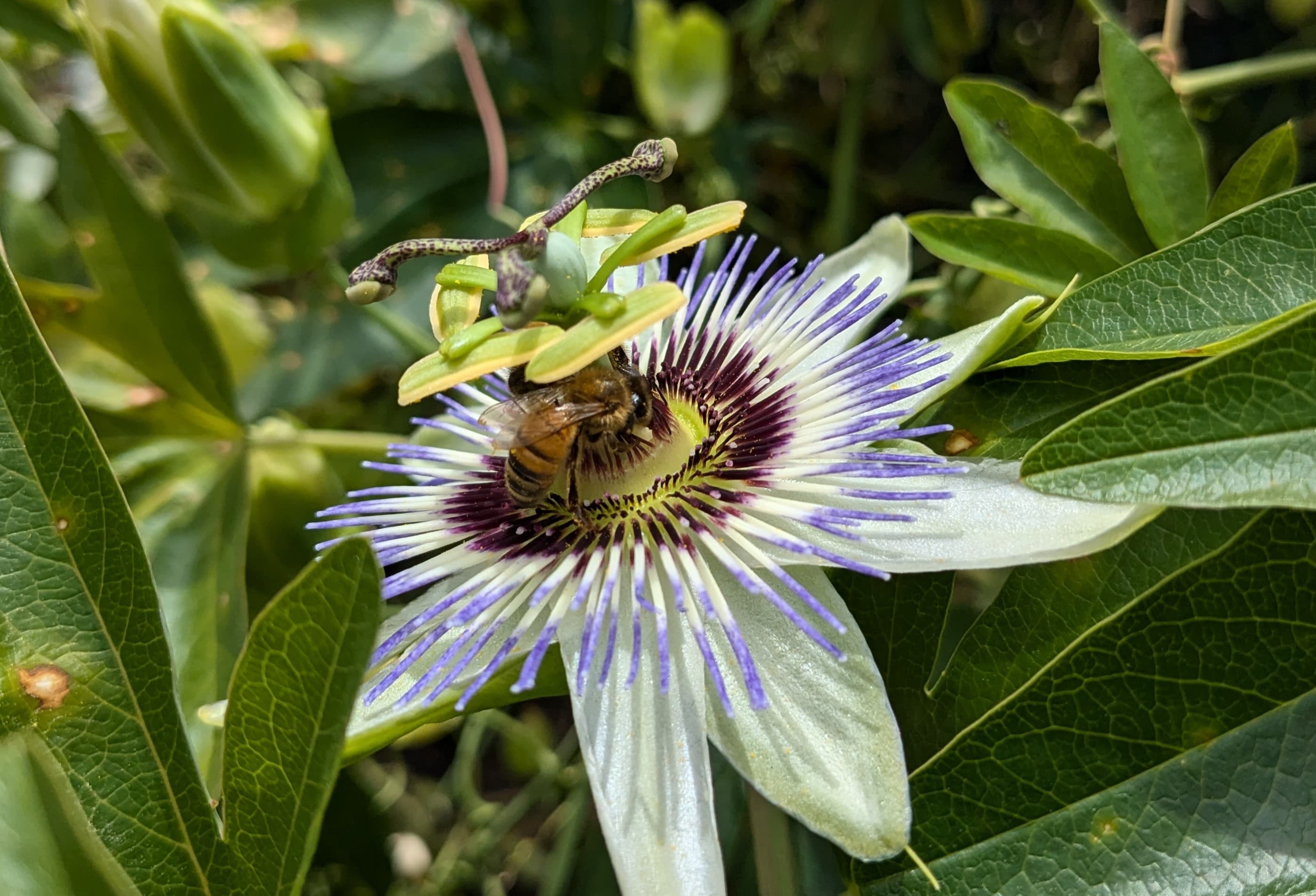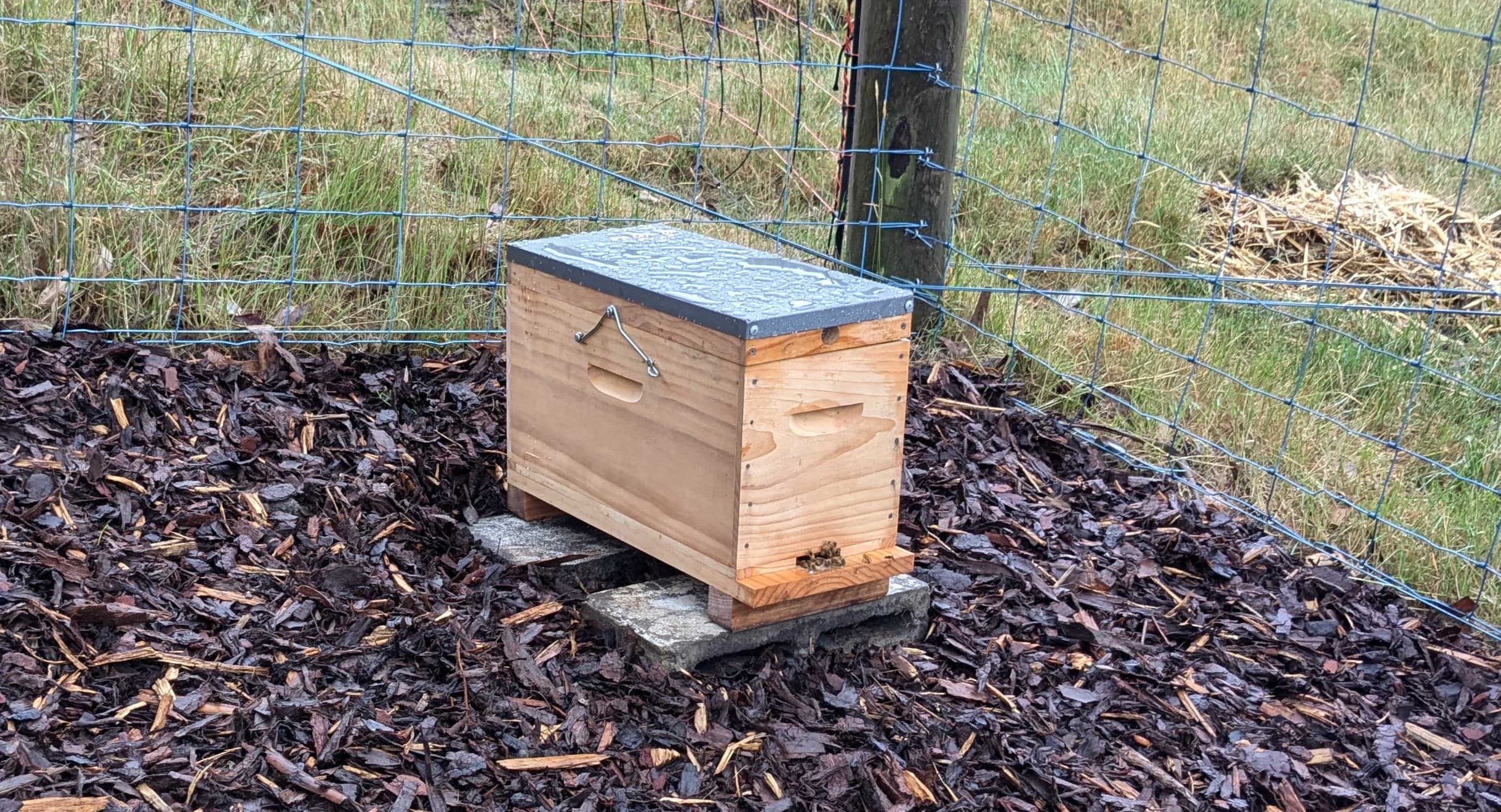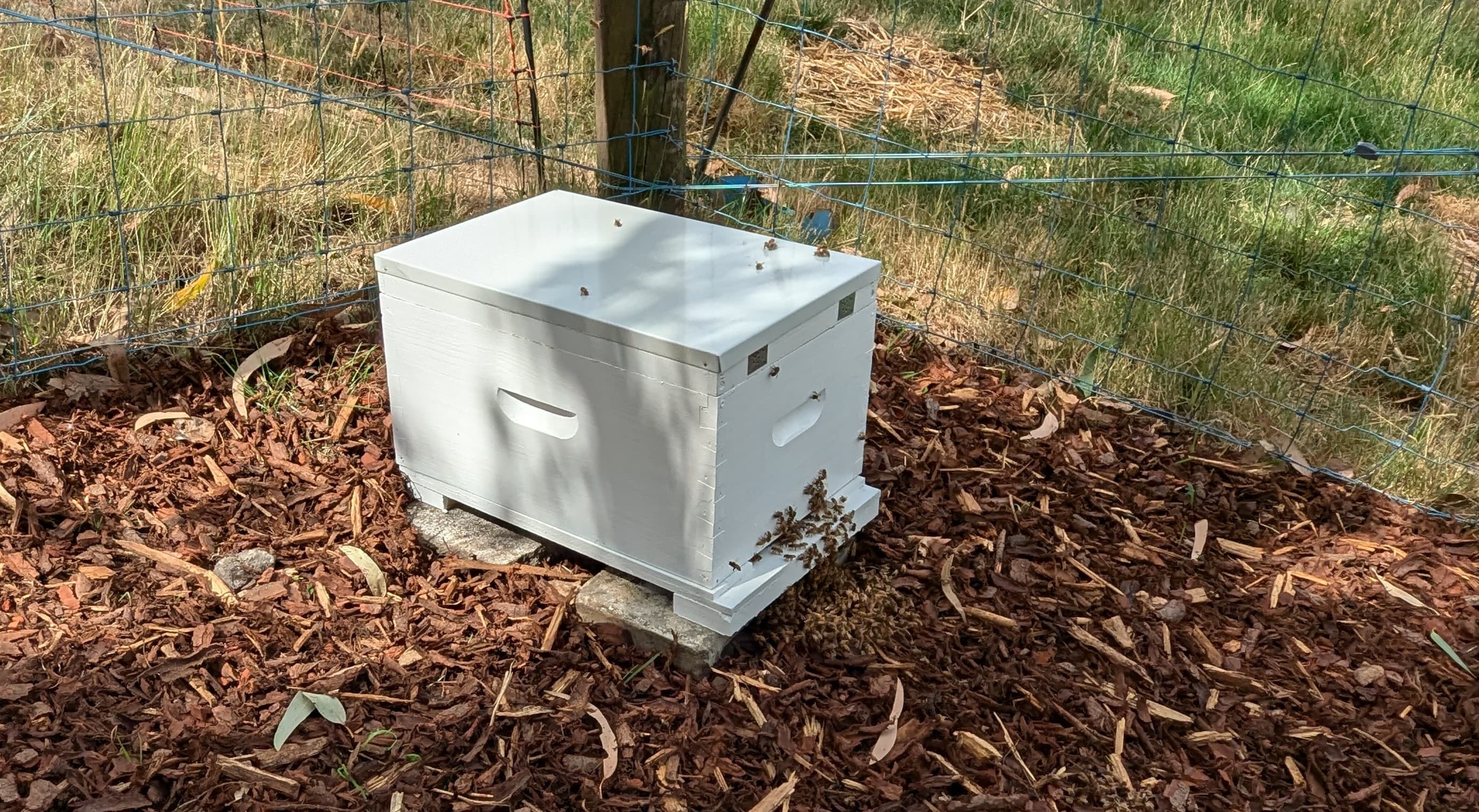- Published on
A New Venture: Establishing a Bee Hive
- Authors

- Name
- Matt Buttress
My introduction to beekeeping was through my cousin, Dan. He had a Flow Hive, which made the hobby sound like an absolute breeze. I am glad I didn't rush into things, as it turns out, bees are fascinatingly complex creatures, and thoughtful preparation prior to placing the hive certainly pays off.

The Local Beekeeping Club
We first joined the local beekeeping club in May. Certainly not the ideal time to start beekeeping, but we felt like we had a lot to learn, so it seemed like a good idea to start early. The other benefit in joining when we did is the first club meeting we attended was a honey tasting competition! I felt that the name was intriguingly ambiguous, and was quietly hoping to see how one might score one's ability to taste honey.
Although it exactly as I had hoped, it worked out far better. Most club members have brought a jar of their own honey (turns out a lot of club members have honey bees), then everyone gets to taste and vote for their favourite. It was the first time I had ever carefully considered the taste of honey, so I didn't have any basis or criteria to work with. But it was fantastic fun, and I met the club president that was so generous with his time and helpful in our preparations for our first hive.
Beekeeping 101
The club runs a day long beekeeping course for beginners which gave us a fantastic overview of our responsibilities and what to expect. Turns out caring for a hive is a lot more than harvesting the honey. A healthy hive is a delicate ecosystem that requires a consistent watchful eye, especially in a time where Verroa is becoming prevalent. I can't say we walked away from that course ready to put our gloved hands in a swarm of angry bees, but we did know what we needed to do next.
Sourcing Our Equipment and Bees
Through the beekeeping club, we found a small business that sold us a Langstroth hive, as well as a hive tool and smoker. We decided against sourcing a swarm and instead reached out to another beekeeping club member, Steve, that breeds queens to source our bees. We felt this to be a simpler introduction, as the bees would be more likely to be healthy and resourceful, and less likely to be aggressive. We purchased a Nucleus box (or Nuc), which contained five frames with roughly 10,000 bees to start. We ordered a protective beekeepers suit online, so just had to wait for it to arrive before we could collect our new bee colony.
Bee Moving Day
It was the evening when we picked up the Nuc box, but I was so grateful that Steve took some time to physically demonstrate how to safely move them from the Nuc into their new hive when they were ready. By the time we were putting the Nuc box into the back seat of the car (yep, in the cabin!) I was feeling surprisingly confident that I knew what I needed to do. On the drive back I was so excited to see the bees exploring their new home, and hopefully pollinating our veggie patch while they were at it.
It was quite dark by the time we got home, but I followed the instructions precisely. Firstly, position the Nuc box exactly where we wanted the hive to go, then don't forget to unblock the hive opening.

It was blocked for the drive so that we didn't them thinking their new home was one of them fancy new Mazda bee hives.
Replacing the Nucleus box
Since we picked up the bees, it had been a fairly wet week, so on day six, when we inspected the hive, we were surprised to see how much they were thriving. They had filled out the empty couple of frames and were already wanting more space! This was the first time we had bee suited up, so it was a little exciting and a little scary working closely with the bees for the first time.

We had a some amazing support from the beekeeping club, and always had someone willing to answer our silly questions, without which it would've been a real challenge. Now a lot of it feels a lot like common sense, much like caring for any of our animals. It's important to understand what they need to be happy and healthy, and how to recognise when things aren't going smoothly and how to fix it. I'm certainly a long way from being an expert, but I feel like I have such a great support network, no matter what challenges come my way.